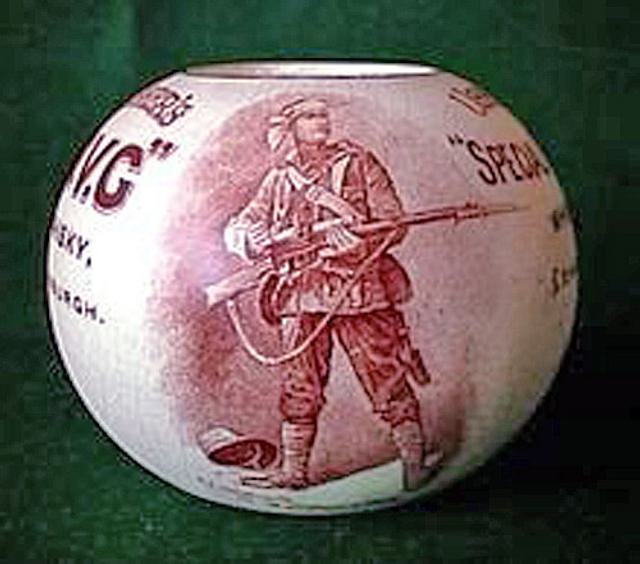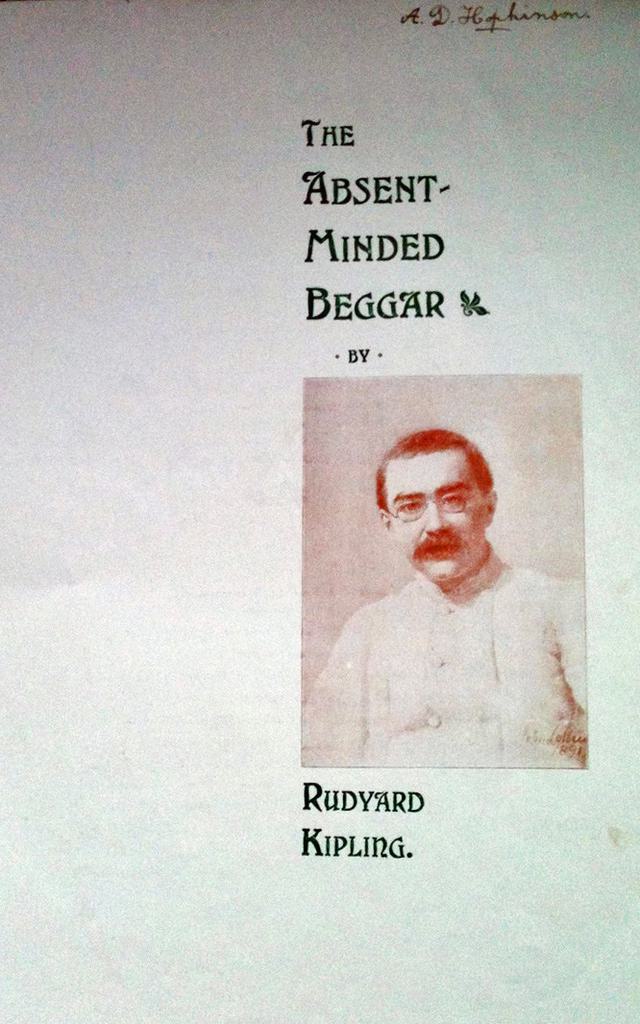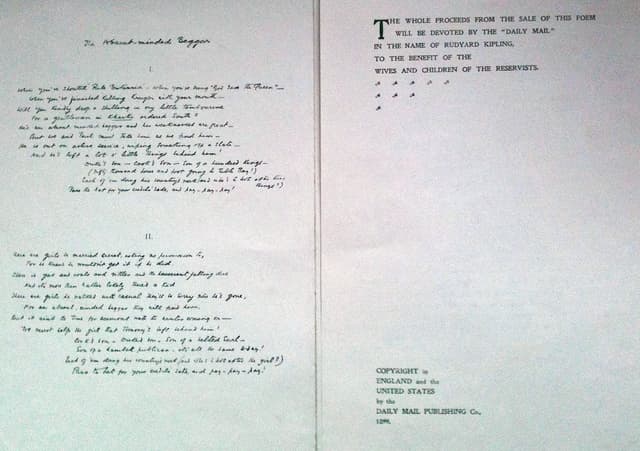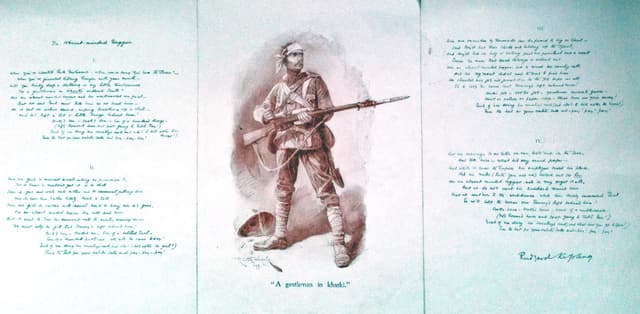The Absent-Minded Beggar: bigger than Band Aid?
- Written by
- Aline Reed
- Added
- June 18, 2014
 View original image
View original image
The first-ever fundraising song? If you thought Band Aid was the first fundraising song ever, this’ll surprise you. Aline Reed has been digging around in the past and discovered a much earlier version created by a rather illustrious team – Rudyard Kipling and Sir Arthur Sullivan (without Gilbert this time). It’s not exactly rock and roll, but did raise the equivalent today of £25 million.
I wish I’d kept the record my older brothers bought me for Christmas in 1984. It was Band Aid’s ‘Do They Know it’s Christmas?’ Until recently, I thought it was the first ever fundraising song. Little did I know that one hundred years previously there had been another…

Unlike the Everest postcard, this is a fundraising treasure I don’t covet; because, for just a few pounds, I became the proud owner of this piece of sheet music, which is well over a hundred years old.
Here’s the extraordinary story behind it.
As you can see, Kipling deliberately wrote it as a fundraiser. He said: ‘I want it to catch just as many pennies as it can’. To that end, Sir Arthur Sullivan (of Gilbert & Sullivan fame) was called upon to set the verses to music. And you can hear it being played here.
‘Sir Arthur Sullivan wedded the words to a tune guaranteed to pull the teeth out of barrel organs. Anybody could do what they chose with the result, recite, sing, intone or reprint, etc, on condition that they turned in all fees and profits to the main account, ‘The Absent-Minded Beggar’ fund, which closed at about a quarter of a million.’
Soon enough, singers throughout the country were performing Kipling and Sullivan’s catchy number with the audience joining in the chorus of ‘Pass the hat for your credit's sake, and pay – pay – pay!’. Now that’s a call to action you can’t ignore.
Richard Caton Woodville, a famous painter of battle scenes, added a stirring illustration of a soldier and the verses appeared on postcards, match strikers and other memorabilia, as well as the piece of sheet music featured here.
I like the way that, just like today, handwriting was used to make it feel extra special.
According to Wikipedia ‘Forty clerks answered 12,000 requests a day for copies of the poem, and it was included in 148,000 packets of cigarettes within two months of the first performance.’
It’s estimated that ‘The Absent-Minded Beggar’ raised the equivalent of £25 million today – that’s way more than the first Band Aid single.
Isn’t that incredible? Edison’s phonograph hadn’t long been invented. Records as we know them didn’t exist yet. But the combined forces of a poet, a composer and an illustrator managed to capture the public’s mood and raise much-needed funds for soldiers and their families with a song.
‘Isn’t that incredible? Edison’s phonograph hadn’t long been invented. Records as we know them didn’t exist yet. But the combined forces of a poet, a composer and an illustrator managed to capture the public’s mood and raise much-needed funds for soldiers and their families with a song.’




















